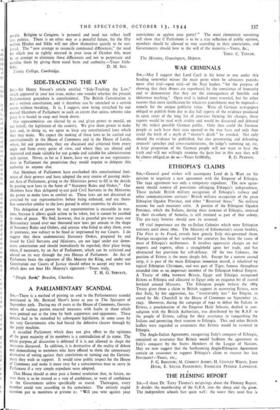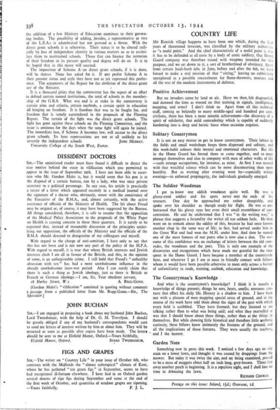THE FLEMING REPORT
Snt,—I share Dr. Terry Thomas's misgivings about the Fleming Report. It divides the membership of the G.B.A. into the sheep and the goats. The independent schools fare quite well: the worst they need fear is the addition of a few Ministry of Education nominees to their govern- ing bodies. The possibility of adding, besides, a representative or two of the L.E.A.s is adumbrated but not pressed as a threat. With the direct grant schools it is otherwise. Their status is to be altered radi- cally by loss of independent identity in various matters so as to assimi- late them to maintained schools. Those that can finance the retention of their freedom in its present quality and degree will do so. It is to be hoped that in this many will succeed.
The imposition of Scheme Aeon direct grant schools, if it is done, will be duress. None has asked for it. If any prefer Scheme A to their present status and style they have not as yet expressed this prefer- ence. The arguments of the Report for the abolition of the direct grant are of the flimsiest.
It is a thousand pities that the controversy has the aspect of an effort to defend certain named institutions, the total of schools in the member- ship of the G.B.A. What was and is at stake in the controversy is certain aims and criteria, certain methods, a certain spirit in education all hinging on freedom. It is freedom that was to be fought for, and freedom that is tamely surrendered in the proposals of the Fleming Report. The terrain of the fight was the direct grant schools. The fight has gone against these schools on the Fleming Committee, and the issue is ominous for the days when the same fight will again be joined. The immediate loss, if Scheme A becomes law, will accrue to the direct grant schools. .Its later repercussions are not at all unlikely to hit
severely the independent schools JOHN MURRAY. University College of the South West, Exeter.



























 Previous page
Previous page